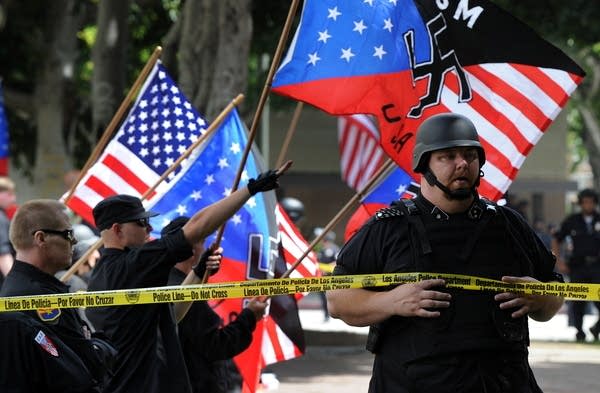The thin line between hate speech and violence
Go Deeper.
Create an account or log in to save stories.
Like this?
Thanks for liking this story! We have added it to a list of your favorite stories.

When, according to police, Wade Michael Page shot and killed six people at a Sikh temple near Milwaukee, it was the first time the general public had heard of him. But groups that track extremists had known about him for a decade. Even though the statements of these groups may be threatening and offensive, they are protected under the First Amendment, which safeguards Americans' right to free speech and assembly.
"Hateful ideology in and of itself is not a crime, nor a basis to deprive someone of a right that is otherwise guaranteed by law," said hate speech and political extremism expert Brian Levin on Southern California Public Radio's AirTalk. "One thing though, the skinhead subculture does glorify violent acts. While most of these people are more or less benign, they are a more dangerous subculture of the extremist hate world."
Levin, Director of the Center for the Study of Hate & Extremism at California State University, San Bernardino, Heidi Beirich of the Southern Poverty Law Center, and Pete Simi, co-author of "American Swastika: Inside the White Power Movement's Hidden Spaces of Hate," join The Daily Circuit to discuss the thin line between hate speech and violence.
Turn Up Your Support
MPR News helps you turn down the noise and build shared understanding. Turn up your support for this public resource and keep trusted journalism accessible to all.




